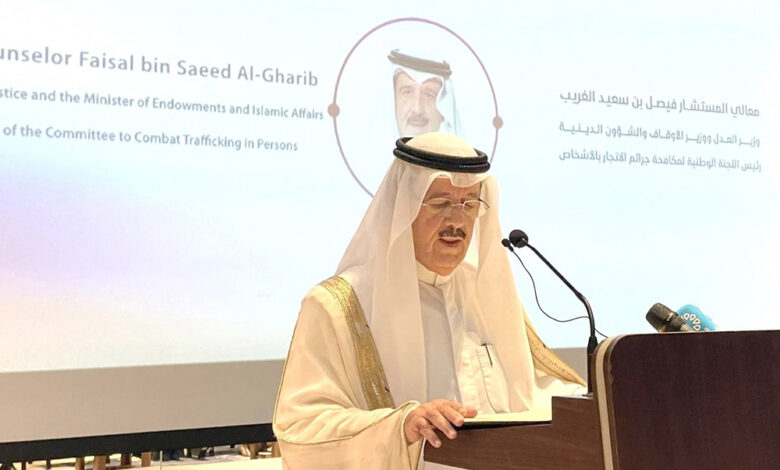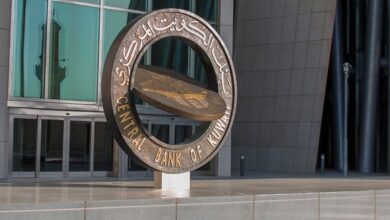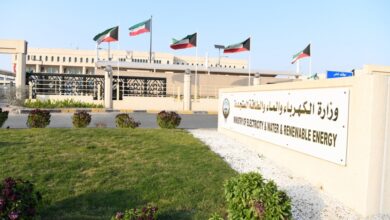Kuwait attaches great importance to combatting human trafficking

Kuwaiti Minister of Justice and Awqaf and Islamic Affairs Faisal Al- Ghareeb said Kuwait attaches great importance to combatting human trafficking through laws and legislation that include deterrent penalties and protect victims’ rights.
This came in his speech Wednesday during the launch of the Middle East forum to combat human trafficking in its fifth session, organized by the Oman Capital Muscat.
In its relentless efforts towards criminalizing all kinds of human trafficking, Kuwait issued Law No. 91 in 2013 regarding combating human trafficking and smuggling immigrants, Al-Ghareeb stated. He explained that the Cabinet approved a decision to adopt the national strategy to prevent those crimes, which contains three main axes (prevention – protection – international cooperation) and the establishment a permanent national committee concerned with implementing that strategy with representation from all relevant national authorities.
This government committee approved the national referral system in December 2019, added Al- Ghareeb, and concluded partnerships with relevant international organizations and signed a declaration of intent with the UN Office on Drugs and Crime for the GCC region, and working on developing this cooperation into a memorandum of understanding.
Al-Ghareeb stated that Kuwait established a shelter for female expatriate workers, where those who wish to reside there are received voluntarily through immediate entry without any requirements and allocating accommodations and means of living. Kuwait is well aware of the importance of cooperation with other countries, especially those who issue reports regarding trafficking around the world, in order to combat it, Al-Ghareeb noted, pointing to the importance of exchanging opinions to achieve the desired goals.
He offered his sincere condolences and sympathy to the Sultanate of Oman over the deaths and losses due to the heavy rains that have swept it these days, and thanked the Sultanate for the warm reception and organizing the forum.He concluded by suggesting several recommendations, including the establishment of a technical working group to develop a map for implementing the recommendations to ensure achieving the desired goals of the forum.
He also recommended benefiting from the experiences of participating countries in the field of labor inspection procedures, control rules, follow-up of recruitment and employment companies, and coordination mechanisms between labor-hosting countries and source countries, as well as continue raising community awareness of the rights and duties of migrant workers and boost combating forced labor. – KUNA













